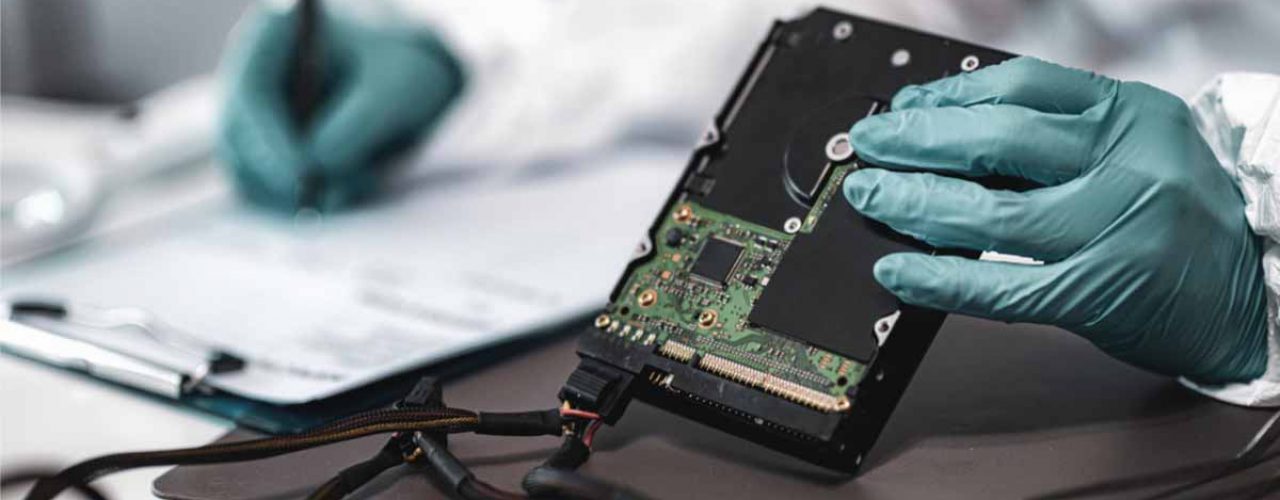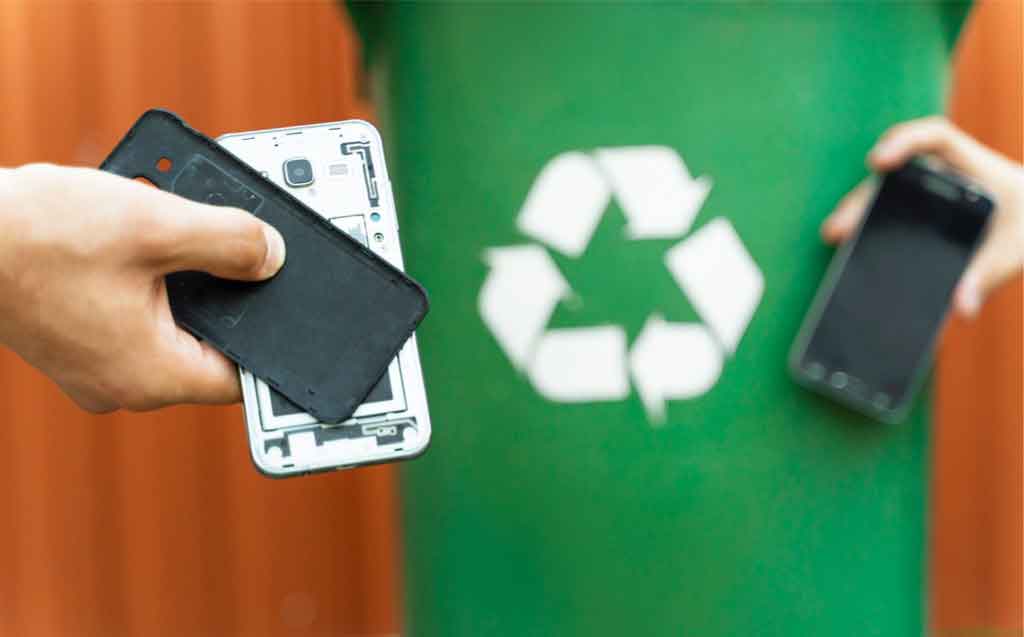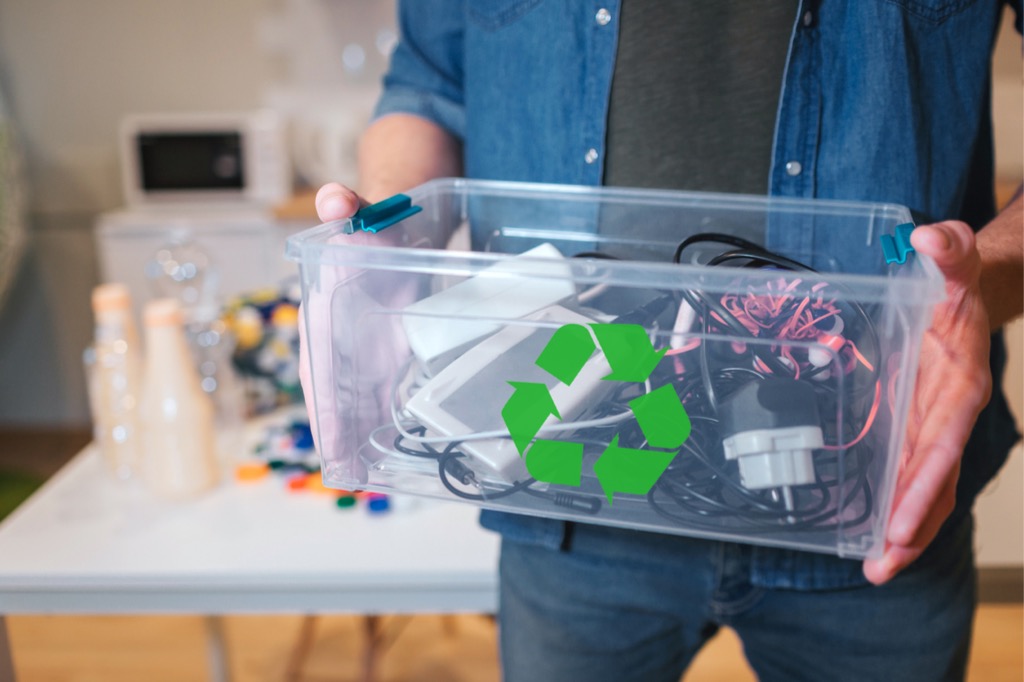How to Identify and Extract Precious Metals in Electronics
Did you know your computer contains precious metals?
The cartoon gold prospector Yosemite Sam had a well-known phrase, “There’s gold in them thar hills!” but did you know that there’s gold and other valuable metals in computers and all other electronic devices?
Gold recovery from electronics isn’t an easy thing to do. It also needs the right equipment, skill, and experience, starting with knowing how to identify precious metals in electronics. It’s important to state that this should not be attempted at home as it requires the use of dangerous chemicals
The good news is that professional IT asset disposition companies like TechReset repurpose over 90% of the e-waste they receive. The e-waste they cannot repurpose goes to certified expert recyclers that can extract the precious metals in electronics, maximizing the return while being kind to the environment.
Throwing Money Away
You wouldn’t throw dollar bills away, so why do people put unwanted electronic devices into the garbage? As well as gold, electronics contain many more valuable metals like silver, palladium, and platinum.
Most people don’t realize that used devices can be recycled. The precious metals can be salvaged and reused to make new devices. Using a specialist recycling company like TechReset, you can get money back from your unwanted computers. They can take your unused equipment and recycle or repurpose it.

Throwing Money Away
Knowing how to identify and extract precious metals in electronics isn’t the only thing that a responsible recycler needs to know about. They also need to know how to do the extraction without polluting the environment.
As well as precious metals, electronic equipment also contains materials that are harmful to humans and the environment, including some that are highly toxic.
So don’t trust your electronic waste (e-waste) to just anyone.
TechReset is one of the industry’s most experienced and trusted providers of computer recycling services, a proponent of green IT recycling, and an ISO 14001 Environmental and R2:2013 certified institution. Our extraction processes strictly adhere to Responsible Recycling, the global standard created explicitly for electronics recycling.

See how much your IT equipment is worth
How Serious are the Problems of E-waste?
Skilled recyclers know how to identify precious metals in electronics. The component parts of computers, phones, and other electronic equipment each contain different metals. The components with the highest content of precious metal include:
- CPUs
- Memory
- Circuit connectors
- Motherboards
- Cables and wires
- Hard drives
- Cell phones
Specialist recyclers who know how to identify precious metals in electronics can get more than just gold recovery from electronics. They can also extract many more precious metals, including large amounts of copper. These metals are used just about everywhere:
Gold | Printed circuit boards (PCBs), cell phones, CPUs, connectors and pins |
Silver | PCBs, cell phones, computer chips, keyboard membranes and some capacitors |
Platinum | Hard drives and PCBs |
Palladium | Cell phones, hard drives, PCBs and capacitors |
Copper | Heat sinks, cables and wiring, cell phones, PCBs and computer chips |
Nickel | PCBs |
Tantalum | PCBs and some capacitors |
Neodymium | Hard drives |
Cobalt | Hard drives |
Aluminum | PCBs, computer chips, hard drives, heat sinks |
Tin | PCBs and computer chips |
Zinc | PCBs |
This should have given you a good idea of why specialist knowledge and equipment is required before you can understand how to identify and extract precious metals in electronics.
Is Recovering Gold from Electronics Worth It?
Mankind has loved the bright, shiny qualities of gold since time immemorial. The desire for gold has caused wars, mass migrations, colonization of inhospitable locations like the Yukon, and sadly enslavement. Gold has been valued for use throughout the globe in jewellery, decoration, currency, and regalia.
Gold is a very good conductor of electricity that doesn’t tarnish over time, and manufacturers now use it as the metal of choice for plating connectors on printed circuit boards.
Gold has maintained a high financial value, reaching over $2,000 an ounce. At these prices, a skilled recycler extracting gold from electronics can expect to receive over $10,000 worth of gold from just one ton of computer circuit boards.
Since billions of electronic products worldwide are obsolete, unwanted, or broken beyond repair every year, extracting gold can be a profitable activity for recyclers that know how to identify and extract precious metals from electronics.

But just knowing how to identify precious metals in electronics and how to extract gold from electronics is just part of the overall requirements. Anyone wanting to set up a business specializing in gold recovery from electronics must consider more factors than just identification and extraction, including:
Extraction Methods
There are two widely used extraction methods for gold recovery from electronics.
- The first uses mixed hydrochloric nitric acids to dissolve the gold for recovery and further hazardous chemicals to extract pure gold from the acids. Toxic fumes are released during the process.
- The second uses electrolysis to extract the gold from the electronic components after crushing and incinerating. Sodium cyanide, a highly dangerous chemical, is added to help separate the particles of gold.
This latter method is the one most used by extractors in third world countries and is problematic. These informal recyclers aren’t skilled in how to identify precious metals in electronics. They know they are in there and use the cheapest and least environmentally friendly methods available to extract them.
Setup costs
As well as learning how to identify and extract precious metals in electronics, businesses need to invest heavily in;
- Machinery
- Laboratory equipment
- Protective clothing
- Fume extraction
- Chemicals
- Premises
- Skilled staff
- Health and safety measures
- Environmental certifications
Operation scale
Because of the high setup costs before extraction can start, the scale of the operation has to be large enough to be able to make a return on the initial investment and generate a profit.
Safety and Environmental Requirements
Both extraction methods rely on toxic chemicals and generate hazardous fumes. They also need systems for disposing of the toxic waste and pollution created during the extraction process. In developed countries, this must follow strict federal and provincial guidelines to protect the workers and the environment.
Raw material availability
To be successful, the recycling organization must have a continual supply of enough raw materials – computers, phones, monitors etc. This can be highly challenging unless the recycling operation has contracts with firms like computer brokers.
Logistics
The transportation and storage of surplus electronics before recycling is a critical activity. The number of electronic products required to keep the recycling process going is huge. The materials are likely to be sourced from a wide area, including landfill sites, municipal recycling centres, and computer manufacturers and retailers.
Highest Precious Metal Content by Weight
A question often asked is, “What electronics contain the most gold?”. Unfortunately, there isn’t a simple answer, as it depends on factors including the equipment
- Age
- Manufacturer
- Country of manufacture
- The sector that the electronics were used in
For example, aerospace, defence, and telecommunications electronics typically contain circuit boards with a higher level of precious metals because of the highest quality and reliability requirements.
If we take the example of cell phones, recycling 1 million cell phones can provide:
- 35,000 pounds of copper
- 800 pounds of silver
- 75 pounds of gold
- 30 pounds of palladium

Make an Informed Decision
Computer Components with Little to no Precious Metal Value
Some computer components have almost no precious metals in them:
- CD drives
- DVD drives
- Video Monitors
- Computer cases
- Keyboards
- Mouse
- Printers
- Scanners
- Power Supplies
These components should still be recycled to avoid polluting landfill sites.


See how we can solve your hard drive destruction needs
How Does TechReset Help Reduce E-waste?
TechReset does not extract precious metals but specializes in the secure and sustainable disposal of electronic waste (e-waste) and secure erasure or eradication of all confidential data through hard drive shredding or certified data cleansing. TechReset repurposes more than 90 per cent of the equipment received from large companies, healthcare institutions, government. We work with certified recycling companies with the expertise for extracting precious metals from the 10 per cent of equipment that cannot be repurposed. Contact us to learn more.